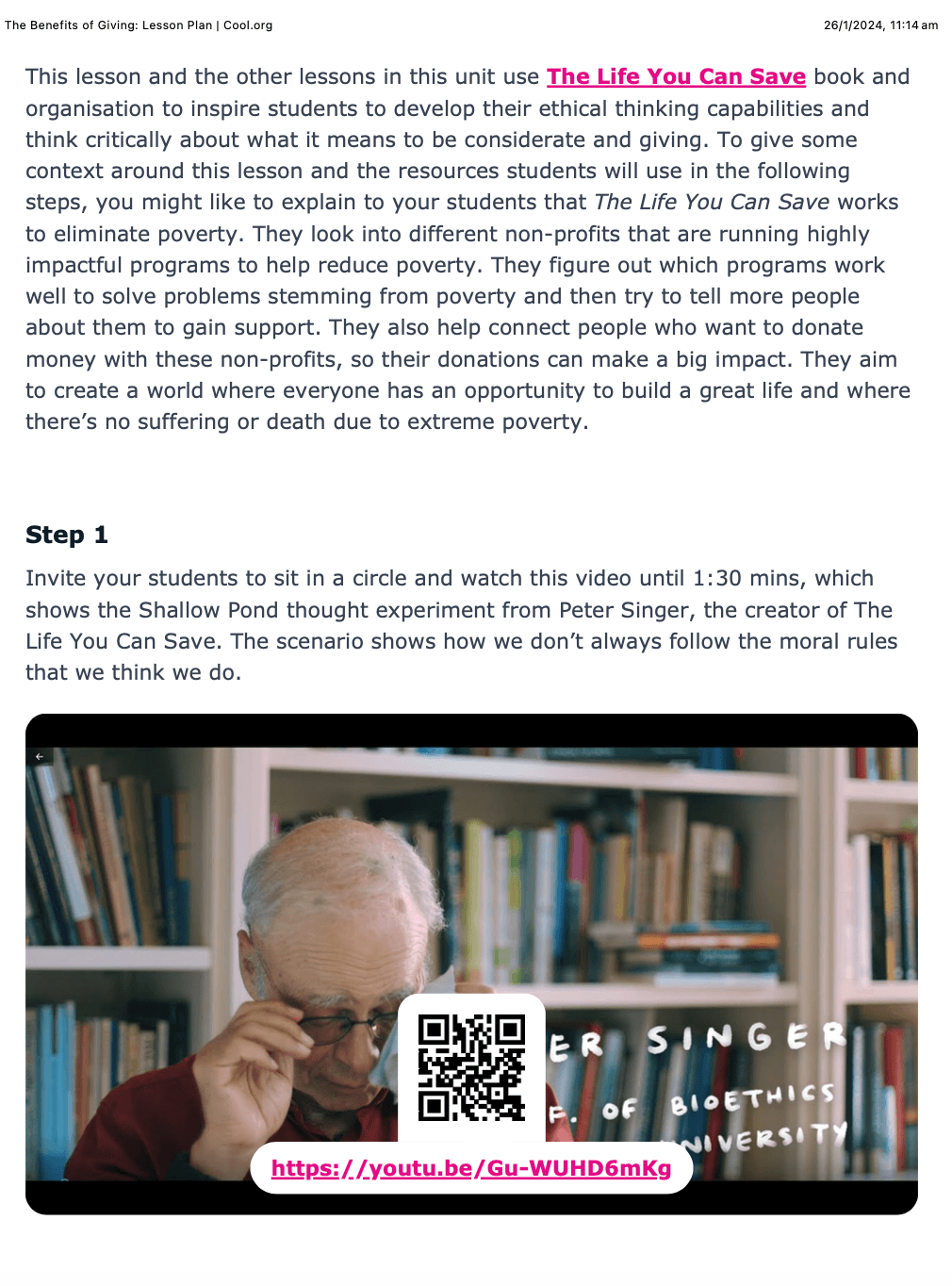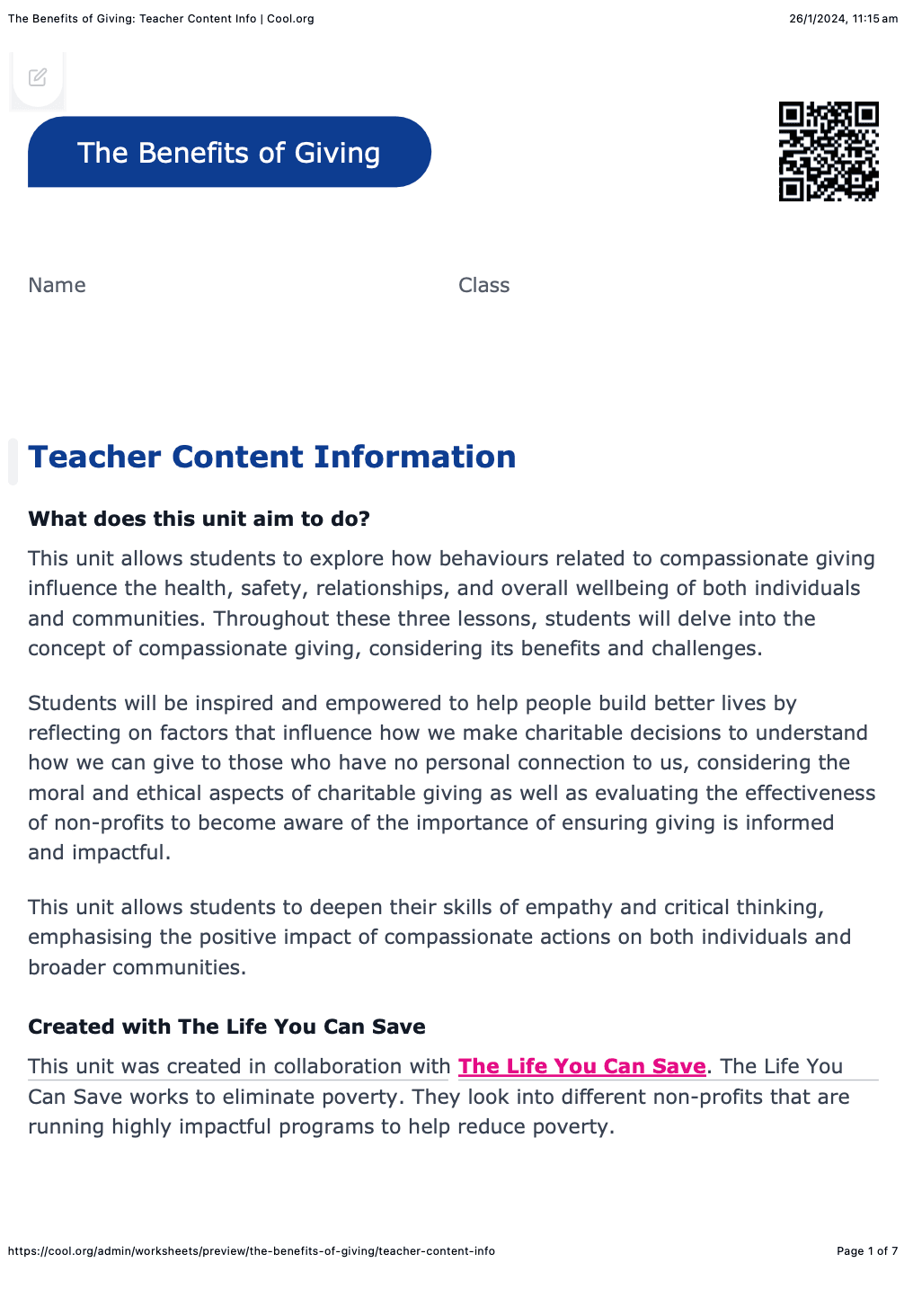
The Benefits of Giving
Lesson2 of 3 in this unit
PrimaryYear 5 - 6Health and Physical EducationHealthSocialHuman RightsSocial ActionSocial and Emotional Learning
Summary
Lesson Guides and Printables
Lesson Plan

Teacher Content Info


Lesson Plan

Teacher Content Info
